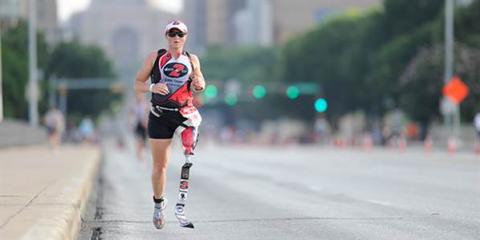Israeli researchers find triathletes feel less pain
All the participants were put through a battery of psychophysical pain tests, involving the application of a heating device to one arm and the submersion of the other arm in a cold-water bath. They also filled out questionnaires about their attitudes toward pain.
In the tests, the triathletes identified pain just as well as non-athletes, but they perceived it as less intense and were able to withstand it longer. The triathletes also showed a better ability to inhibit pain than non-athletes, as measured by conditioned pain modulation — the degree to which the body eases one pain in response to another. The researchers say psychology may be a factor here too. The triathletes with less fear of pain tended to exhibit better pain regulation. Previous studies have similarly found that psychological manipulation can affect pain perception.
Another explanation for triathletes’ lower pain ratings, higher pain tolerance, and better pain regulation is that they have taught their bodies to respond powerfully to painful stimuli through their intense training. The TAU researchers say their study — along with existing literature — suggests that psychology and physiology together enable triathletes to do what they do.
“It is very difficult to separate physiology and psychology,” says Prof. Defrin. “But in general, experience is the sum of these factors.”
Their findings were published in the journal Pain.
Viva Sarah Press

